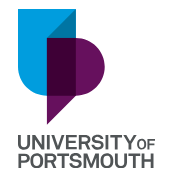About Biology Bsc (hons) in University of Portsmouth
Are you excited by the natural world and want to tackle issues like disease, endangered species, and food and water shortages?
This accredited BSc (Hons) Biology degree gives you the knowledge and skills to apply your interest in the science of life and living organisms. With this degree under your belt, you can contribute positively to society in your career.
In your first year, you'll get a foundation in key biological theories and principles. You'll also be introduced to the practical skills and technology you'll use throughout your degree and in your career as a biologist.
In years 2 and 3, you'll build on your fundamental biology skills and knowledge. You can specialise in the strands of biology that interest you most, such as biotechnology, genomics, marine conservation and animal science.
In your final year, you'll design and run an investigation and present it to a professional specification. You can do a placement year after your second year, or study abroad on a conservation or research scheme.
Your Biology degree could set you up for a rewarding career in education, research, scientific journalism or the biotechnology and environmental sectors. And you'll be eligible to apply for Associate Membership of the Royal Society of Biology.
Careers and opportunities
What can you do with a Biology degree?
Completing this BSc (Hons) Biology degree course will open doors to further study and academic research. As a modern biologist, you can also put your degree to work in areas such as:
- biotechnology
- the food industry
- science administration
- biomedical research
- environmental consultancy
- teaching
What jobs can you do with a Biology degree?
Roles our graduates have taken on include:
- research scientist
- science technician
- grant administrator
- medical writer
- biomedical sales specialist
- ecological surveyor
Our Careers and Employability service can help you find a job that puts your skills to work in the industry. We'll support you for up to 5 years after you graduate.
Academic qualification equivalents
- If you have an average of 75% or above in the 12 Standard (State Board) examinations or 70% in the Central Board, we'll consider you for admission onto an undergraduate course such as a Bachelor's degree. You must have studied relevant subjects and achieved strong grades.
English language requirements (one of the below):
- IELTS: A minimum of IELTS band 6.0, with no component below 5.5.
- TOEFL iBT: For most of our Bachelor's degrees, you need a score of 79 with a minimum of:18 in Reading 17 in Listening 20 in Speaking 17 in Writing Some courses, especially those with a high level of discussion and writing, require higher scores. You can see course-specific details on the individual course pages.
- PTE: 54 points, with a minimum of 51 in each component.
University of Portsmouth Highlights
| Type of Institution |
Public |
| Campus Setting |
Urban |
| Endowment |
9.9 Lakhs GBP |
| Number of Campuses |
2 - Langstone Campus and University Quarter |
| Percentage of International Students |
26% |
| Total number of Professors |
1,126 academic and Research staff |
| Student Satisfaction Rate |
Secured 88% Student Satisfaction |
| Graduate Job Rate |
97.5% |
| International fee |
£11,250 per annum |
| Type of Academic Programs |
UG, PG, Ph.D., research and Pathway Courses |
| Mode of Program |
Full time |
| Average Graduate Salary |
£13,900 - £15,900 a year |
University of Portsmouth Average Tuition Fees And Other Expenses
| Expenses |
Estimated cost in pounds |
| Undergraduate Fee |
£13,900 – £15,900 approx |
| Postgraduate Fee |
£13,900 – £15,900 approx |
| Accommodation |
£5000 approx |
| Cost of living |
£7000 - £10,000 approx |
| Placement year fee |
£2400 |
